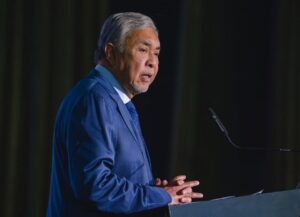KUALA LUMPUR: Provisions in the newly-signed US-Malaysia reciprocal trade agreement relating to sanitary and phytosanitary (SPS) standards pose no issue for Malaysia, according to Federation of Livestock Farmers Associations of Malaysia (FLFAM) advisor Datuk Jeffrey Ng Choon Ngee.
Ng said Malaysia already adheres to the guidelines set by the World Organisation for Animal Health (WOAH).
“The SPS measures that everyone is following are actually the WOAH standard.
“Malaysia has not implemented any measures beyond the WOAH standard,” he told the New Straits Times today.
He said that compliance with these standards is crucial for protecting livestock health and ensuring national food security.
“If we do not follow the WOAH standard, we will be in trouble, as diseases can threaten the country’s production,” he said.
Ng also highlighted Malaysia’s long-standing transparency in import and export rules.
“Malaysia has been quite transparent in terms of import and export conditions.
“So I see no problem surrounding these provisions,” he added.
However, Ng acknowledged that some trading nations in the region may impose requirements that exceed internationally recognised standards.
“Sometimes certain countries have conditions beyond the standard to control imports and protect their own food production,” he said.
He said Malaysia generally avoids trade with highly restrictive markets, as excessive barriers make it difficult for Malaysian exporters to expand into those markets.
“Sometimes we find it so difficult to enter, with so many requirements, that it seems almost impossible to comply,” he said.
As Malaysia maintains its food security agenda, Ng urged policymakers to remain steadfast in defending internationally accepted rules.
“I encourage the government to stand firm. We do not ask the government to go beyond the SPS standard, but the basic SPS standard must be upheld. There’s no negotiation on the basic WOAH SPS standard,” he said.
Yesterday, Malaysia and the US signed a wide-ranging reciprocal trade agreement aimed at strengthening bilateral economic ties, expanding market access, and bolstering supply chain resilience.
Through the agreement, Malaysia will grant significant preferential market access for American exports, covering industrial goods such as chemicals, machinery, electrical equipment, metals, and passenger vehicles, as well as agricultural products including dairy, poultry, beverages, rice, and fuel ethanol.
© New Straits Times Press (M) Bhd






![A fiery path of faith and renewal [WATCH]](https://prwire.my/wp-content/uploads/2025/11/A-fiery-path-of-faith-and-renewal-WATCH-300x157.jpg)